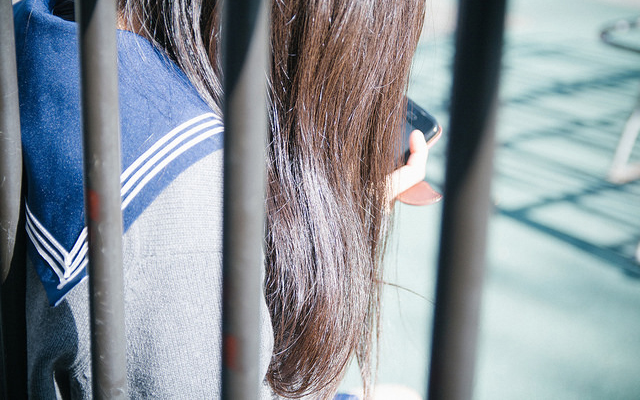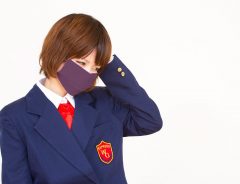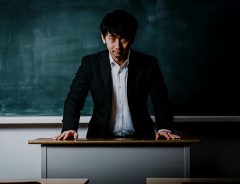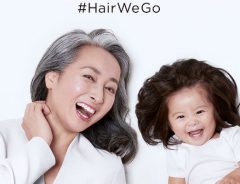
Source: Dick Thomas Johnson / (C) Flickr
Petition Launched To Stop Forcible Hair Dyeing From Natural Color to Black in Japanese Schools
- Tags:
- Change.org / hair color / hair dyeing / Japanese schools / Pantene / petition / school rules / signature campaign
Related Article
-

Student Called Out For Going Against School Policy: White Masks Only
-

Shedding Light On Japan’s “Shady School Rules”: Japanese Twitter Users Speak Out
-

Japanese high school girl who broke no-dating rule sues school for de-facto expulsion and wins
-

10% Pay Cut For Teacher Who Repeatedly Spat On and Slapped Students’ Faces
-

Petition For Original Neon Genesis Evangelion Dub Cast To Re-Dub Series For Netflix
-

Japanese Baby With Famously Epic Hair Gets Modeling Deal


Japanese Schools Forcing Teens To Dye Hair Black
As we reported before, in October 2017, news of an Osakan teen who was forced by her high school to dye her naturally brown hair black went viral after it was picked up by both domestic and international news sources. This resulted in a heated debate on social media, with many questioning the need for forcible hair dyeing, submission of "natural hair color certificates," as well as other hair-related and appearance-related rules in Japanese schools, and some calling for their elimination.
While the discussion continued in the background, P&G's Pantene brand was preparing its #HairWeGo What's Wrong With My Hair campaign in Japan, surveying 1,000 current and former high school and middle school students and teachers about hair dyeing and other hair care rules. The campaign, launched on March 18th, discovered that one in 13 current and former middle and high school students said they had been "urged" to dye their brown hair black. Moreover, 87% of teachers expressed a need for change in hairstyle rules at their school.
The campaign's video, available with English subtitles, has surpassed 9.97 million views at the time of writing:
Petition launched on Change.org
In late April, a petition, written in both Japanese and English, was launched on the Change.org platform, directly inspired by Pantene's campaign, called #What's Wrong With My Hair? Stop Telling Students To Dye Their Hair Black (In the original Japanese: #この髪どうしてダメですか? 地毛の黒染め指導はやめてください ). According to the organizers:
"In this signature campaign, we will focus on 'the issue of the instruction of forcing natural hair dye black.' We will work on the issue throughout positive 'talk' with not only students and teachers but also an entire society.
The collected signatures will be submitted to the Governor of Tokyo and the Chairman of the Board of Education of Tokyo, and we would like to help to eliminate 'the issue of forcing natural hair dye black.'
The Change.org page also makes the point that with foreign nationals under 18 currently accounting for 400,000, or about 1 in 50 in Japan (Ministry of Justice statistics on foreign nationals published June, 2018), the issue of hair color also concerns biracial children, and schools requiring them to submit "Natural Hair Color Certificates" or to dye their natural hair black can be considered a form of discrimination.
Your support is welcomed
Currently at over 11,200 signatures, the campaign can still use more support to make a convincing case to the Governor of Tokyo and the Chairman of the Board of Education of Tokyo.
To add your name and/or leave a comment, or, if you feel inclined, contribute with a donation, you can visit their Change.org page here (scroll down for the English translation).
If you can read Japanese, you can also visit the main campaign page here. Inquiries by email (also accepted in English) can be sent to konokamisyomei@gmail.com
About the organizers
The campaign, which is officially approved by P&G, was launched by U.O., a university student who, in her high school days, was forced to dye her hair even though she submitted a Natural Hair Color Certificate, lawyer Toru Takiguchi, Makiko Nakamuro, expert in the economics of education and Associate Professor at Keio University's Faculty of Policy Management, Lin Kobayashi, founder and Representative Director of United World College ISAK Japan, and Hiroki Komazaki, Special Guest Professor at Keio University and Representative Director of Florence, a Japanese certified non-profit organization concerned with the health and well-being of children.